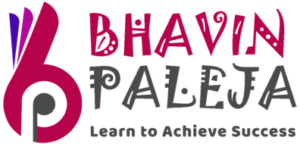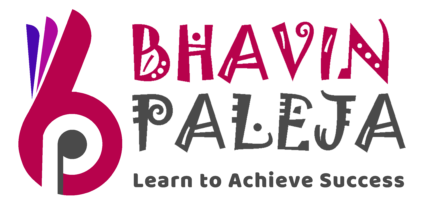
C & C++ Programming
Duration: 3 Months
Fees: ₹ 5000/-
Batch Time: 2 Hours from Monday to Saturday
Contact for Available / Preferable Batch Timings (Also for weekends)
Course Description
C and C++ are high-level programming languages used to create computer software and applications. C is a procedural programming language, while C++ is an object-oriented programming language that extends the features of C.
C is used to create efficient and fast computer programs and operating systems. It is a general-purpose language that is used for developing system software, device drivers, embedded systems, and high-performance applications. C is a low-level language, which means it provides direct access to computer hardware, making it suitable for programming applications that require speed and low-level control.
C++ is a powerful and versatile language that is used to create software applications, operating systems, games, and other high-performance applications. C++ adds object-oriented programming features to C, making it suitable for developing large-scale software applications. It is a popular language for developing complex applications that require high performance, such as game engines, database management systems, and financial systems.
Proficiency in C and C++ is a valuable skill for software developers, programmers, and engineers, and is widely used in many industries, such as finance, gaming, aerospace, and telecommunications. C and C++ are considered the foundation of modern programming and are essential languages for anyone interested in software development.
Course Eligibility
C and C++ are two of the most popular programming languages used in software development and engineering. Here are some groups of people who might find it particularly useful to take a course in C or C++:
- Computer science or IT students: C and C++ are often taught as part of the curriculum in computer science and IT courses. Students who take a course in C or C++ can gain a deep understanding of programming concepts and learn how to build complex software applications.
- Software developers and engineers: C and C++ are widely used in the software development and engineering industries. Professionals who work with low-level systems programming, embedded systems, operating systems, and game development will benefit from learning these languages.
- Data scientists: While not as commonly used as other languages such as Python or R, C and C++ are still used in data science applications, particularly in areas that require high-performance computing, such as scientific computing or simulation.
- Job seekers: Many job postings in software development and engineering require knowledge of C or C++. Job seekers who have experience with these languages are more likely to be competitive in the job market.
Overall, anyone interested in software development and engineering can benefit from learning C or C++. These languages are powerful and versatile, and they offer a great deal of flexibility and control when building complex applications.
Course Opportunities
Proficiency in C and C++ can lead to various career options in the field of software development and engineering, such as:
- Software Developer: C and C++ are widely used in software development, making proficiency in these languages essential for software developers. Software developers use C and C++ to create computer programs, mobile applications, games, and other software products.
- Systems Programmer: C is used for low-level programming and provides direct access to computer hardware, making it a suitable language for systems programming. Systems programmers use C to create operating systems, device drivers, firmware, and other system-level software.
- Game Developer: C++ is a popular language for developing games and game engines, making it an essential skill for game developers. Game developers use C++ to create game engines, graphics engines, and other game-related software.
- Embedded Systems Engineer: C is widely used in embedded systems, which are specialized computer systems used in various devices, such as medical devices, cars, and industrial equipment. Embedded systems engineers use C to develop software for embedded systems.
- Database Administrator: C++ is used in database management systems to create high-performance and efficient software for managing and processing large amounts of data. Database administrators use C++ to develop database management systems and other database-related software.
- Robotics Engineer: C and C++ are commonly used in robotics, making proficiency in these languages essential for robotics engineers. Robotics engineers use C and C++ to develop software for controlling robots and other autonomous systems.
Overall, proficiency in C and C++ can lead to various career options in software development, systems programming, game development, and other related fields. As the demand for software developers and engineers continues to grow, proficiency in C and C++ will continue to be a valuable skill in the job market.
Course Syllabus
- Introduction
- Algorithms & Flowcharts
- Input & Output Functions
- Control Flow
- Array
- Function
- Pointer
- Structure & Union
- File Handling
- Preprocessor
- Concept of OOP
- Classes
- Overloading
- Inheritance
- Polymorphism
- File Manipulation
- Examination
Course FAQs
Q: What is CSS?
A: CSS (Cascading Style Sheets) is a styling language us
Q: What is C and C++?
A: C and C++ are programming languages that are widely used for system-level programming, embedded systems, game development, and other applications. C is a procedural programming language, while C++ is an object-oriented programming language that extends C with additional features, including object-oriented programming concepts.
Q: What is covered in a C and C++ course?
A: A C and C++ course typically covers the fundamentals of programming, including understanding C/C++ syntax, data types, variables, operators, control flow, functions, pointers, memory management, file handling, and basic input/output operations. It may also cover more advanced topics such as object-oriented programming, data structures, algorithms, debugging, and best practices for writing efficient and maintainable code.
Q: What are the benefits of taking a C and C++ course?
A: Taking a C and C++ course can provide several benefits, including:
Strong foundation in programming: C and C++ are considered to be foundational languages, and learning them can provide a solid understanding of programming concepts that can be applied to other languages as well.
Versatility: C and C++ are used in a wide range of applications, including system-level programming, embedded systems, game development, and high-performance computing, making them versatile languages to learn.
Career opportunities: C and C++ skills are in high demand in various industries, including technology, gaming, automotive, aerospace, and more, and having proficiency in these languages can open up career opportunities.
Portability: C and C++ code can be compiled and executed on different operating systems and platforms, making them highly portable.
Performance: C and C++ are known for their performance and efficiency, making them suitable for applications that require high performance and low-level system access.
Q: Can I take a C and C++ course online?
A: Yes, there are many online platforms that offer C and C++ courses. These courses provide flexibility in terms of schedule, pace of learning, and often offer interactive learning experiences through tutorials, coding exercises, and assessments. Online courses can be a convenient way to learn C and C++ programming skills.
Q: Do I need any prior programming experience to take a C and C++ course?
A: While prior programming experience can be helpful, many C and C++ courses are designed for beginners and do not require extensive programming experience. However, having a basic understanding of programming concepts and syntax would be beneficial.
Q: Are there any certifications available for C and C++?
A: Yes, there are certifications available for C and C++ programming, offered by organizations such as Microsoft, Oracle, and the C++ Institute. These certifications can validate your skills and knowledge in C and C++ and can be a valuable addition to your resume.
Q: How long does it take to complete a C and C++ course?
A: The duration of a C and C++ course depends on the level of proficiency you want to achieve and the specific course or program you choose. It can range from a few weeks to several months, depending on the course content and your pace of learning. However, with regular practice and dedication, you can learn C and C++ relatively quickly.
Q: Can C and C++ be used for different platforms and applications?
A: Yes, C and C++ can be used for a wide range of applications and platforms, including system-level programming, embedded systems, game development, desktop applications, networking, and more. They are widely used in industries such as technology, gaming, automotive, aerospace, and finance, among others.
Q: Are C and C++ still relevant in today’s programming landscape?
A: Yes, C and C++ are still widely used and relevant in today’s programming landscape. Despite the emergence of newer
ed for describing the presentation and layout of web pages. It is used in combination with HTML to define the appearance of web pages, including elements such as fonts, colors, spacing, layout, and more.
Q: What is covered in a CSS course?
A: A CSS course typically covers the fundamentals of CSS, including understanding CSS syntax, selectors, properties, and values. It may also cover advanced topics such as CSS box model, layout techniques, responsive design, CSS frameworks, and best practices for organizing and managing CSS code. Some CSS courses may also cover pre-processors like Sass or Less, which are tools that enhance the functionality of CSS.
Q: What are the benefits of taking a CSS course?
A: Taking a CSS course can provide several benefits, including:
Web design skills: Learning CSS allows you to control the visual appearance of web pages, giving you the skills to create visually appealing and user-friendly websites.
Career opportunities: CSS skills are in high demand in the field of web development and web design, and having CSS skills can open up career opportunities in these fields.
Customization and creativity: CSS provide a high level of customization, allowing you to create unique styles and layouts for web pages, which can enhance your creativity and design capabilities.
Enhanced web development workflow: Understanding CSS allows you to separate the presentation layer from the structure and content of web pages, which can improve your web development workflow and make your code more maintainable and scalable.
Responsive web design: CSS is essential for creating responsive web designs that adapt to different screen sizes and devices, which is crucial in today’s mobile-first world.
Q: Can I take a CSS course online?
A: Yes, there are many online platforms that offer CSS courses. These courses provide flexibility in terms of schedule, pace of learning, and often offer interactive learning experiences through tutorials, practice exercises, and assessments. Online courses can be a convenient and cost-effective way to learn CSS skills.
Q: Do I need any prior coding experience to take a CSS course?
A: Some basic understanding of HTML would be helpful before taking a CSS course, as CSS is used in combination with HTML for styling web pages. However, many CSS courses are designed for beginners and do not require extensive coding experience.
Q: Are there any certifications available for CSS?
A: While there are no specific certifications for CSS alone, there are certifications available for web development and web design that may include CSS as one of the components. For example, certifications like the Web Developer Certification offered by organizations like W3Schools or the Certified Web Designer (CWD) offered by the World Organization of Webmasters (WOW) may cover CSS along with other relevant technologies.
Q: How long does it take to complete a CSS course?
A: The duration of a CSS course depends on the level of proficiency you want to achieve and the specific course or program you choose. It can range from a few weeks to several months, depending on the course content and your pace of learning. However, with regular practice and dedication, you can learn CSS relatively quickly.
Q: Can CSS be used with different web development frameworks and libraries?
A: Yes, CSS can be used in combination with different web development frameworks and libraries, such as Bootstrap, Foundation, and Materialize, to enhance the visual appearance and layout of web pages. These frameworks and libraries provide pre-designed CSS styles and components that can be used to streamline web development and create modern and responsive web designs.



